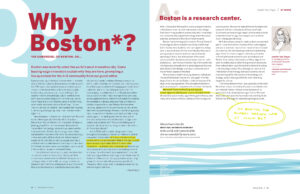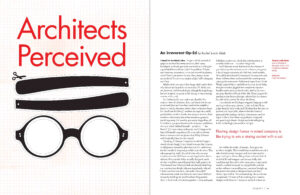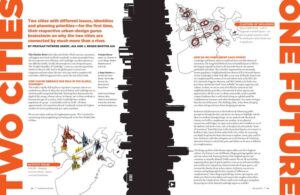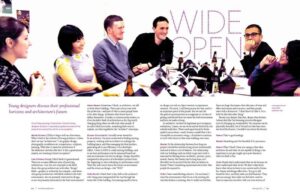David Hacin Guest Edits for Architecture Boston!
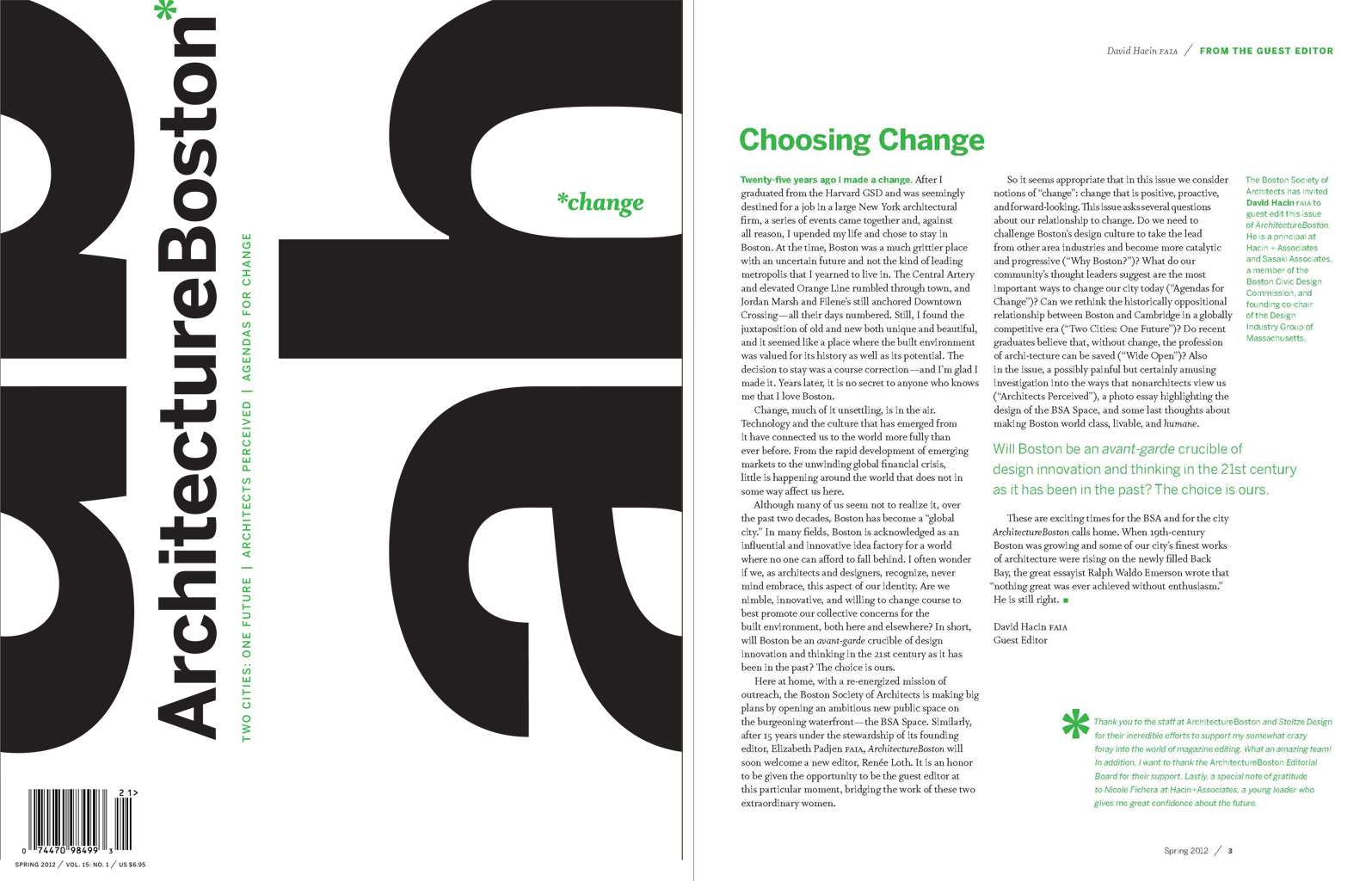
This month David acted as Guest Editor for Architecture Boston. The theme of the issue: *Change. Read his Editor’s Letter, below:
Choosing Change
Twenty-five years ago I made a change. After I graduated from the Harvard GSD and was seemingly destined for a job in a large New York architectural firm, a series of events came together and, against all reason, I upended my life and chose to stay in Boston. At the time, Boston was a much grittier place with an uncertain future and not the kind of leading metropolis that I yearned to live in. The Central Artery and elevated Orange Line rumbled through town, and Jordan Marsh and Filene’s still anchored Downtown Crossing — all their days numbered. Still, I found the juxtaposition of old and new both unique and beautiful, and it seemed like a place where the built environment was valued for its history as well as its potential. The decision to stay was a course correction — and I’m glad I made it. Years later, it is no secret to anyone who knows me that I love Boston. Change, much of it unsettling, is in the air. Technology and the culture that has emerged from it have connected us to the world more fully than ever before. From the rapid development of emerging markets to the unwinding global financial crisis, little is happening around the world that does not in some way affect us here. Although many of us seem not to realize it, over the past two decades, Boston has become a “global city.” In many fields, Boston is acknowledged as an influential and innovative idea factory for a world where no one can afford to fall behind. I often wonder if we, as architects and designers, recognize, never mind embrace, this aspect of our identity. Are we nimble, innovative, and willing to change course to best promote our collective concerns for the built environment, both here and elsewhere? In short, will Boston be an avant-garde crucible of design innovation and thinking in the 21st century as it has been in the past? The choice is ours. Here at home, with a re-energized mission of outreach, the Boston Society of Architects is making big plans by opening an ambitious new public space on the burgeoning waterfront — the BSA Space. Similarly, after 15 years under the stewardship of its founding editor, Elizabeth Padjen, FAIA, ArchitectureBoston will soon welcome a new editor, Renée Loth. It is an honor to be given the opportunity to be the guest editor at this particular moment, bridging the work of these two extraordinary women.
So it seems appropriate that in this issue we consider notions of “change”: change that is positive, proactive, and forward-looking. This issue asks several questions about our relationship to change. Do we need to challenge Boston’s design culture to take the lead from other area industries and become more catalytic and progressive (“Why Boston?”)? What do our community’s thought leaders suggest are the most important ways to change our city today (“Agendas for Change”)? Can we rethink the historically oppositional relationship between Boston and Cambridge in a globally competitive era (“Two Cities: One Future”)? Do recent graduates believe that, without change, the profession of archi-tecture can be saved (“Wide Open”)? Also in the issue, a possibly painful but certainly amusing investigation into the ways that nonarchitects view us (“Architects Perceived”), a photo essay highlighting the design of the BSA Space, and some last thoughts about making Boston world class, livable, and humane. These are exciting times for the BSA and for the city ArchitectureBoston calls home. When 19th-century Boston was growing and some of our city’s finest works of architecture were rising on the newly filled Back Bay, the great essayist Ralph Waldo Emerson wrote that “nothing great was ever achieved without enthusiasm.” He is still right.
David Hacin, FAIA Guest Editor
Click here to continue reading…
